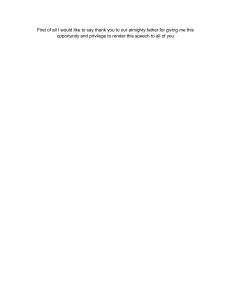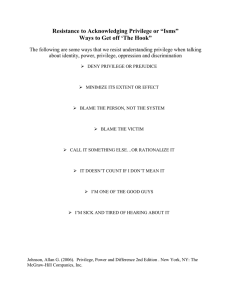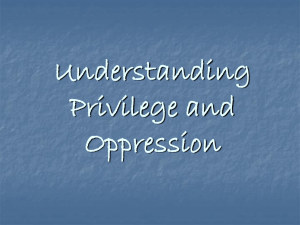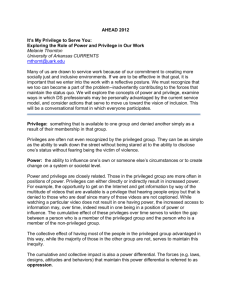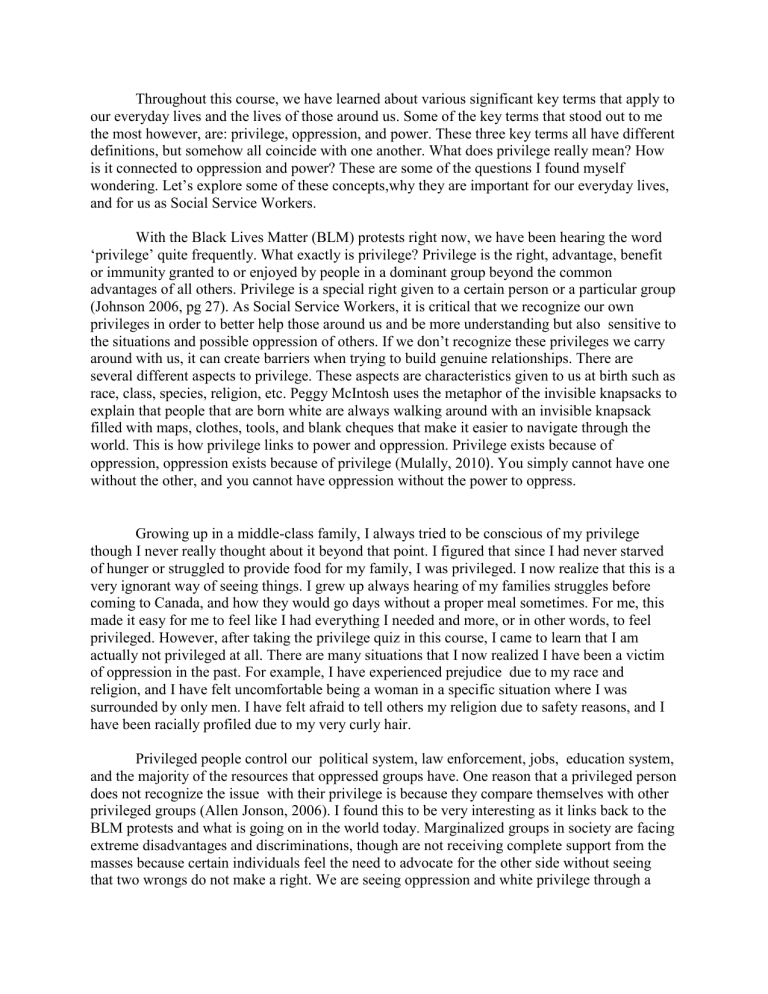
Throughout this course, we have learned about various significant key terms that apply to our everyday lives and the lives of those around us. Some of the key terms that stood out to me the most however, are: privilege, oppression, and power. These three key terms all have different definitions, but somehow all coincide with one another. What does privilege really mean? How is it connected to oppression and power? These are some of the questions I found myself wondering. Let’s explore some of these concepts,why they are important for our everyday lives, and for us as Social Service Workers. With the Black Lives Matter (BLM) protests right now, we have been hearing the word ‘privilege’ quite frequently. What exactly is privilege? Privilege is the right, advantage, benefit or immunity granted to or enjoyed by people in a dominant group beyond the common advantages of all others. Privilege is a special right given to a certain person or a particular group (Johnson 2006, pg 27). As Social Service Workers, it is critical that we recognize our own privileges in order to better help those around us and be more understanding but also sensitive to the situations and possible oppression of others. If we don’t recognize these privileges we carry around with us, it can create barriers when trying to build genuine relationships. There are several different aspects to privilege. These aspects are characteristics given to us at birth such as race, class, species, religion, etc. Peggy McIntosh uses the metaphor of the invisible knapsacks to explain that people that are born white are always walking around with an invisible knapsack filled with maps, clothes, tools, and blank cheques that make it easier to navigate through the world. This is how privilege links to power and oppression. Privilege exists because of oppression, oppression exists because of privilege (Mulally, 2010). You simply cannot have one without the other, and you cannot have oppression without the power to oppress. Growing up in a middle-class family, I always tried to be conscious of my privilege though I never really thought about it beyond that point. I figured that since I had never starved of hunger or struggled to provide food for my family, I was privileged. I now realize that this is a very ignorant way of seeing things. I grew up always hearing of my families struggles before coming to Canada, and how they would go days without a proper meal sometimes. For me, this made it easy for me to feel like I had everything I needed and more, or in other words, to feel privileged. However, after taking the privilege quiz in this course, I came to learn that I am actually not privileged at all. There are many situations that I now realized I have been a victim of oppression in the past. For example, I have experienced prejudice due to my race and religion, and I have felt uncomfortable being a woman in a specific situation where I was surrounded by only men. I have felt afraid to tell others my religion due to safety reasons, and I have been racially profiled due to my very curly hair. Privileged people control our political system, law enforcement, jobs, education system, and the majority of the resources that oppressed groups have. One reason that a privileged person does not recognize the issue with their privilege is because they compare themselves with other privileged groups (Allen Jonson, 2006). I found this to be very interesting as it links back to the BLM protests and what is going on in the world today. Marginalized groups in society are facing extreme disadvantages and discriminations, though are not receiving complete support from the masses because certain individuals feel the need to advocate for the other side without seeing that two wrongs do not make a right. We are seeing oppression and white privilege through a whole new lens all while people are becoming more educated and aware than ever. Though I do believe it is long overdue, this is a great starting point for us as a society and human race to really put an end to this injustice once and for all. We are finally recognizing that there indeed is a problem with privilege and oppression and people are now using their voices as a source of power to make a change.
